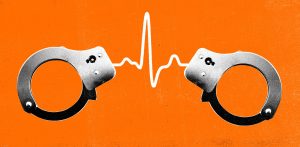
The below came from The Legal Pad, Volume 4, Issue 5 (May, 2020), published by Cyrus Gladden from the gulag in Moose Lake, Minnesota.
Sex Offense litigation and Policy Resource Center, “Strategies for Reducing COVID-19 Exposure by Revising the Implementation of Registration Policies. Housing Banishment laws. and Other Restrictions Impacting People with Convictions,” March 28, 2020
Text Excerpt:
“Suspend Internet access restrictions. Some people who are on probation or parole are forbidden from accessing wide swaths of the Internet, and some states have laws limiting Internet access for people listed on a conviction registry 10. During this crisis, access to the Internet has become even more critical: nearly everyone must rely on Internet access for work, news, homeschooling, services, and family connections, individual safety, as well as public health compliance, requires timely online access to crucial information about social and health services, as well as access to medical services that are moving online.”
“‘Step down’ people in civil commitment. More than 6,000 people are locked post-sentence in prison-like state civil commitment facilities, 11 that pose the same coronavirus dangers to staff and detainees as jails and prisons. States should speed up ‘step-down’ procedures and move people into supervised community settings.”
Footnote 10:
“While the United States Supreme Court struck down a North Carolina law criminalizing the use of social media sites by people required to register in Packingham v, North Carolina, 582 U.S._, 137 S. Ct. 1730 (2017), there are many other types of restrictions that limit the ability of people both on and off criminal supervision from accessing the internet. Cf. People v. Morger, (Ill. 2019) (holding that condition of supervision prohibiting accessing social media was unconstitutional); People v. Minnis, 67 N.E.3d 272 (Ill. 2016) (upholding conviction for failure to register internet identifiers), J. I. v. New Jersey State Parole Board, l 55 A.3d 1008 (N .J. 2017) (Total computer & Internet ban imposed on a registrant reversed and remanded to determine whether the total computer ban served any public safety, rehabilitative, or other penological goal). Wendy Sawyer & Pete Wagner, “Mass Incarceration: The Whole Pie 2020,” Prison Policy Initiative, March 24, 2020).




